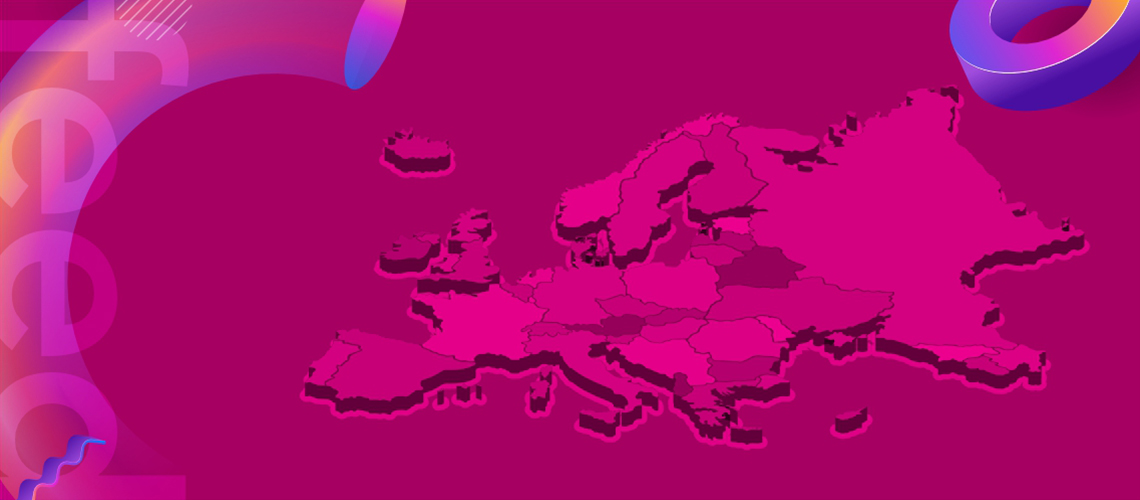
स्पोर्ट्स बेटिंग: यूरोप में कानूनी स्थिति और बाजार का विश्लेषण
स्पोर्ट्स बेटिंग यूरोप के मनोरंजन क्षेत्र का एक महत्वपूर्ण हिस्सा बन चुका है, जहाँ लाखों प्रशंसक अपने पसंदीदा खेलों पर दांव लगाने का आनंद लेते हैं। वास्तव में, यूरोपीय जुआ बाजार दुनिया के सबसे बड़े बाजारों में से एक है, जहाँ स्पोर्ट्स बेटिंग इस उद्योग के राजस्व का एक बड़ा हिस्सा है। स्पोर्ट्स बेटिंग की कानूनी स्थिति और यूरोप के विभिन्न देशों में इसके नियमों को समझना बेटर्स और ऑपरेटर्स दोनों के लिए महत्वपूर्ण है। इस ब्लॉग में, हम प्रमुख यूरोपीय देशों में स्पोर्ट्स बेटिंग के कानूनी वातावरण का विश्लेषण करेंगे और बेटिंग डेस्टिनेशन चुनते समय ध्यान रखने योग्य महत्वपूर्ण कारकों पर चर्चा करेंगे।
यूरोपीय संघ (ईयू) का iGaming नियमन में भूमिका
हालांकि यूरोपीय संघ (ईयू) सदस्य देशों के बीच सहयोग के लिए एक ढांचा प्रदान करता है, लेकिन जुआ नियमन, जिसमें स्पोर्ट्स बेटिंग भी शामिल है, मुख्य रूप से व्यक्तिगत देशों द्वारा निर्धारित किया जाता है। ईयू प्रत्येक देश को iGaming (इंटरनेट जुआ) से संबंधित अपने कानून और नियम बनाने की अनुमति देता है, जिसके कारण यूरोप में एक विविध नियामक परिदृश्य उभरा है। इस स्वायत्तता का मतलब यह है कि एक देश में जो कानूनी है, वह दूसरे देश में अनुमति नहीं हो सकता है। इसलिए, प्रत्येक देश के विशिष्ट नियमों को समझना आवश्यक है।
यूरोपीय स्पोर्ट्स बेटिंग बाजार
यूरोपीय स्पोर्ट्स बेटिंग बाजार के आकार और विकास पर प्रमुख आँकड़े
यूरोपीय जुआ बाजार में उल्लेखनीय वृद्धि देखी जा रही है, जो पूरे महाद्वीप में स्पोर्ट्स बेटिंग की बढ़ती लोकप्रियता को दर्शाता है। 2021 में, कुल राजस्व 88 अरब यूरो तक पहुँच गया था। 2022 के लिए पूर्वानुमान यह दर्शाते थे कि यह आँकड़ा बढ़कर 108.5 अरब यूरो हो जाएगा, जो बाजार के विस्तार में एक महत्वपूर्ण उछाल को दर्शाता है। आगे देखें तो, 2027 तक बाजार मूल्य के 134 अरब यूरो तक पहुँचने की उम्मीद है।
ये आँकड़े न केवल स्थिर वृद्धि को दर्शाते हैं, बल्कि एक उभरते उद्योग को भी प्रदर्शित करते हैं जो हर साल गति प्राप्त कर रहा है। इस उल्लेखनीय विस्तार में कई कारक योगदान देते हैं।
यूरोप के जुआ उद्योग में ऑनलाइन स्पोर्ट्स बेटिंग प्लेटफॉर्म्स की भूमिका
ऑनलाइन स्पोर्ट्स बेटिंग प्लेटफॉर्म्स ने सुविधाजनक और विविध बेटिंग विकल्पों तक पहुँच प्रदान करके जुआ उद्योग में क्रांति ला दी है। ये प्लेटफॉर्म उपयोगकर्ताओं को कभी भी, कहीं से भी दांव लगाने की सुविधा देते हैं, जिससे उद्योग का विस्तार हुआ है। लाइव बेटिंग, मोबाइल ऐप्स और वर्चुअल स्पोर्ट्स जैसी नवाचारों ने उपयोगकर्ता अनुभव और जुड़ाव को बढ़ाया है। ऑनलाइन प्लेटफॉर्म ऑपरेटर्स को डेटा एनालिटिक्स टूल्स भी प्रदान करते हैं, जिससे वे ग्राहक व्यवहार को बेहतर ढंग से समझ सकते हैं और उनके अनुरूप सेवाएँ प्रदान कर सकते हैं।
जिन देशों में स्पोर्ट्स बेटिंग कानूनी है
यूरोप के कई देशों में स्पोर्ट्स बेटिंग की अनुमति है, लेकिन नियम और बाजार की स्थितियाँ काफी भिन्न होती हैं। आइए कुछ प्रमुख देशों पर करीब से नज़र डालें जहाँ स्पोर्ट्स बेटिंग कानूनी है।
यूनाइटेड किंगडम
यूनाइटेड किंगडम में दुनिया के सबसे स्थापित और विनियमित स्पोर्ट्स बेटिंग बाजारों में से एक है। यूके गेम्बलिंग कमीशन (UKGC) स्पोर्ट्स बेटिंग सहित सभी जुआ गतिविधियों की निगरानी करता है, जिससे निष्पक्ष खेल और उपभोक्ता सुरक्षा सुनिश्चित होती है।
नियम और लाइसेंसिंग:
-
ऑनलाइन और ऑफलाइन बेटिंग: दोनों प्रकार कानूनी हैं और ऑपरेटर्स को UKGC से लाइसेंस प्राप्त करना आवश्यक है।
-
सख्त अनुपालन: ऑपरेटर्स को विज्ञापन, जिम्मेदार जुआ उपायों और डेटा सुरक्षा से संबंधित सख्त नियमों का पालन करना होता है।
-
कराधान: खिलाड़ियों के जीत पर कर नहीं लगता, लेकिन ऑपरेटर्स को सकल लाभ पर 15% पॉइंट ऑफ कंजम्पशन टैक्स देना होता है।
यूके का मजबूत नियामक ढांचा इसे अन्य देशों के लिए एक मॉडल बनाता है। खिलाड़ी सुरक्षा और जिम्मेदार जुआ पर जोर देने से एक विश्वसनीय बेटिंग वातावरण बना है।
जर्मनी
जर्मनी में एक बड़ा और बढ़ता हुआ स्पोर्ट्स बेटिंग बाजार है, लेकिन इसका नियामक परिदृश्य जटिल रहा है। 2021 में अपडेट किए गए इंटरस्टेट ट्रीटी ऑन गेम्बलिंग का उद्देश्य सभी संघीय राज्यों में नियमों को एकीकृत करना था।
नियम और लाइसेंसिंग:
-
लाइसेंसिंग सिस्टम: ऑपरेटर्स को कानूनी रूप से स्पोर्ट्स बेटिंग सेवाएँ प्रदान करने के लिए लाइसेंस प्राप्त करना होता है।
-
कराधान: बेटिंग स्टेक्स पर 5% कर लगाया जाता है, जो ऑपरेटर्स के लिए विवाद का विषय रहा है।
-
खिलाड़ी सुरक्षा: मासिक जमा सीमा और विज्ञापन के सख्त नियम शामिल हैं।
नियामक चुनौतियों के बावजूद, जर्मनी में फुटबॉल (सॉकर) पर बेटिंग विशेष रूप से लोकप्रिय है। बुंडेसलीगा घरेलू और अंतरराष्ट्रीय स्तर पर महत्वपूर्ण बेटिंग गतिविधि को आकर्षित करता है।
फ्रांस
फ्रांस में जुआ का एक लंबा इतिहास है, और स्पोर्ट्स बेटिंग कानूनी और विनियमित है। नेशनल गेम्बलिंग अथॉरिटी (ANJ) नियामक प्राधिकरण है।
नियम और लाइसेंसिंग:
-
ऑनलाइन बेटिंग: 2010 में कानूनी बनाई गई, ऑपरेटर्स को ANJ से लाइसेंस प्राप्त करना होता है।
-
कराधान: ऑपरेटर्स को उच्च करों का सामना करना पड़ता है, जिसमें टर्नओवर पर लेवी भी शामिल है, जो कुछ का मानना है कि प्रतिस्पर्धात्मकता को प्रभावित करता है।
-
बेटिंग विकल्प: जुआ की लत को सीमित करने के लिए केवल कुछ खेलों और दांव के प्रकारों की अनुमति है।
फ्रांस का सतर्क दृष्टिकोण बाजार की खुलापन और सामाजिक जिम्मेदारी के बीच संतुलन बनाने का प्रयास करता है। घुड़दौड़ और फुटबॉल बेटिंग के सबसे लोकप्रिय खेल हैं।
इटली
इटली का जुआ बाजार अच्छी तरह से स्थापित है, जहाँ स्पोर्ट्स बेटिंग एक महत्वपूर्ण हिस्सा है। एजेंज़िया डेले डोगाने ई मोनोपोली (ADM) उद्योग को विनियमित करती है।
नियम और लाइसेंसिंग:
-
व्यापक लाइसेंसिंग: ऑनलाइन और लैंड-बेस्ड दोनों ऑपरेटर्स को ADM से लाइसेंस प्राप्त करना होता है।
-
विज्ञापन प्रतिबंध: 2019 का जुआ विज्ञापन प्रतिबंध टीवी, रेडियो और ऑनलाइन विज्ञापनों सहित लगभग सभी प्रकार के जुआ विज्ञापनों को कवर करता है। हालाँकि, ऑपरेटर्स अभी भी खेल टीमों या स्टेडियमों के साथ प्रायोजन के माध्यम से विज्ञापन दे सकते हैं, जो प्रतिबंध के दायरे में नहीं आते।
-
कराधान: सकल गेमिंग राजस्व पर कर लगाया जाता है, जिसकी दरें प्लेटफॉर्म (ऑनलाइन बनाम रिटेल) के आधार पर अलग-अलग होती हैं।
सख्त नियमों के बावजूद, इटली यूरोप के सबसे बड़े जुआ बाजारों में से एक बना हुआ है। फुटबॉल विशेष रूप से लोकप्रिय है, और सीरी ए मैचों पर भारी बेटिंग रुचि देखी जाती है।
स्पेन
स्पेन ने एक विनियमित बाजार के साथ स्पोर्ट्स बेटिंग को अपनाया है, जो विशिष्ट शर्तों के तहत घरेलू और अंतरराष्ट्रीय ऑपरेटर्स को अनुमति देता है।
नियम और लाइसेंसिंग:
-
नियामक प्राधिकरण: जनरल डायरेक्टोरेट फॉर द रेगुलेशन ऑफ गेम्बलिंग (DGOJ) लाइसेंसिंग और अनुपालन की निगरानी करता है।
-
क्षेत्रीय स्वायत्तता: जबकि क्षेत्रीय सरकारों के लैंड-बेस्ड बेटिंग (जैसे बेटिंग शॉप्स और कैसीनो) के लिए अतिरिक्त नियम होते हैं, ऑनलाइन स्पोर्ट्स बेटिंग DGOJ द्वारा राष्ट्रीय स्तर पर विनियमित होती है। क्षेत्रीय सरकारों का प्रभाव स्थानीय विज्ञापन और लैंड-बेस्ड संचालन पर अधिक होता है, न कि ऑनलाइन बेटिंग नियमों पर।
-
जिम्मेदार जुआ: ऑपरेटर्स को लत और नाबालिगों की सुरक्षा के लिए उपाय लागू करने होते हैं।
ला लीगा और राष्ट्रीय टीम की सफलता के कारण स्पेन के बाजार में वृद्धि देखी गई है। युवा वयस्कों के बीच ऑनलाइन बेटिंग विशेष रूप से लोकप्रिय है।
यूरोपीय स्पोर्ट्स बेटिंग डेस्टिनेशन चुनते समय विचार करने योग्य कारक
स्पोर्ट्स बेटिंग के लिए देश चुनते समय, चाहे आप एक बेटर हों या ऑपरेटर, कई कारकों को ध्यान में रखना होता है।
लाइसेंसिंग और नियामक ढांचा
एक मजबूत नियामक ढांचा यह सुनिश्चित करता है कि बेटिंग वातावरण निष्पक्ष हो और ऑपरेटर्स जवाबदेह हों। यूके जैसे देशों में सख्त नियम हैं जो उपभोक्ताओं की सुरक्षा करते हैं। विश्वसनीय प्राधिकारियों द्वारा लाइसेंस प्राप्त और विनियमित ऑपरेटर्स वाले क्षेत्राधिकारों को चुनना आवश्यक है।
जीत पर कर और शुल्क
कर नीतियाँ ऑपरेटर्स और खिलाड़ियों दोनों को महत्वपूर्ण रूप से प्रभावित कर सकती हैं। कुछ देशों में, खिलाड़ियों की जीत पर कर लगता है, जबकि अन्य में यह कर-मुक्त होता है। ऑपरेटर्स को राजस्व और स्टेक्स पर करों पर विचार करना होता है, जो लाभप्रदता को प्रभावित कर सकते हैं।
बेटिंग विकल्पों की गुणवत्ता और विविधता
खेलों और बेटिंग मार्केट्स की विविधता बेटिंग अनुभव को बढ़ा सकती है। परिपक्व बाजार वाले देश अक्सर लाइव बेटिंग, ईस्पोर्ट्स और वर्चुअल स्पोर्ट्स सहित अधिक विकल्प प्रदान करते हैं।
निष्कर्ष
यूरोप में स्पोर्ट्स बेटिंग के कानूनी परिदृश्य को समझना बाजार को प्रभावी ढंग से नेविगेट करने के लिए महत्वपूर्ण है। प्रत्येक देश के अपने नियम, कर नीतियाँ और बाजार स्थितियाँ होती हैं, जो स्पोर्ट्स बेटिंग के संचालन को प्रभावित करती हैं। इन कारकों के बारे में सूचित रहकर, बेटर्स बेहतर विकल्प चुन सकते हैं, और ऑपरेटर्स नियमों का पालन करने और उपभोक्ता मांगों को पूरा करने के लिए प्रभावी रणनीतियाँ बना सकते हैं। यूरोप का स्पोर्ट्स बेटिंग दृश्य जीवंत और विविध है, जो जिम्मेदारी से किए जाने पर आनंद और व्यावसायिक विकास के अवसर प्रदान करता है। अपने iGaming व्यवसाय को सफल बनाने के लिए फायदेमंद बेटिंग समाधानों की खोज करने के लिए FeedConstruct से संपर्क करें।






